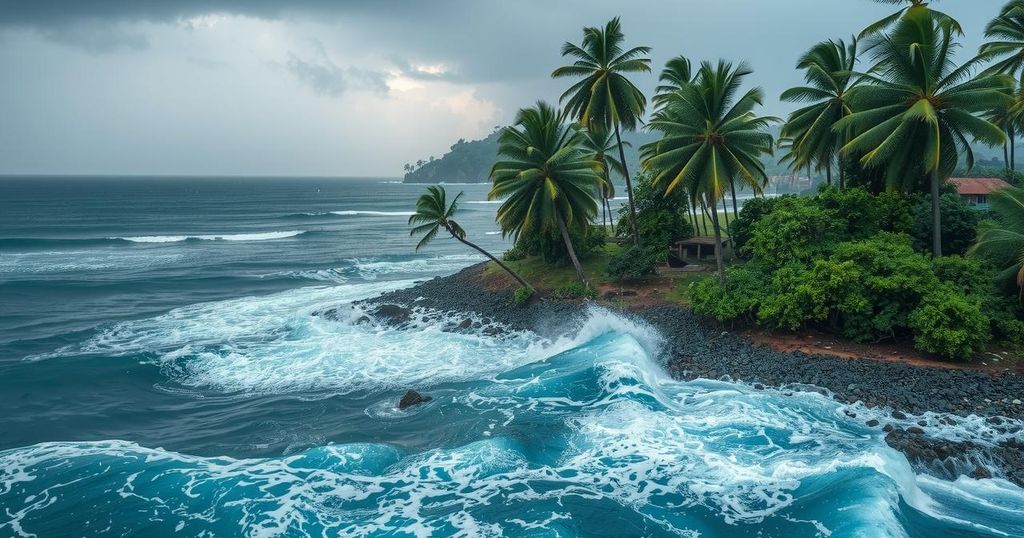Tropical Storm Dikeledi struck northern Mozambique on Monday, causing three deaths in Madagascar and flooding concerns in Mayotte. The storm intensified in Mozambique, prompting flood warnings and strong wind alerts. President Nyusi urged citizens to seek safety and prepare for potential impacts.
On Monday, Tropical Storm Dikeledi made landfall in northern Mozambique, following its destructive passage through Madagascar, where it resulted in the deaths of at least three individuals and caused significant flooding in Mayotte. According to Meteo-France, as Dikeledi approached Mozambique’s Nampula province, it intensified, leading to hazardous winds and heavy rainfall. In December, the region had already experienced severe devastation when Cyclone Chido claimed numerous lives and inflicted extensive harm in both Mozambique and Mayotte.
Mozambique’s National Institute of Meteorology has issued flood alerts, predicting rainfall amounts that could reach nearly eight inches within a span of 24 hours and wind gusts of up to 110 miles per hour. President Filipe Nyusi has advised citizens in the storm’s trajectory to prioritize their safety by seeking immediate shelter and ensuring they have adequate provisions of food and water. He stated, “Go immediately to a safe shelter and stay there until the authorities give you further instructions,” appealing for caution during the parliamentary session in Maputo.
The storm previously struck Madagascar’s northern coast as a cyclone over the weekend, unleashing powerful winds and torrential rains that have raised concerns of further impacts on the island’s southwestern coastline as Dikeledi continues its path southward. Typically, cyclones in the Indian Ocean form from November to March, and this year, unusually high surface ocean temperatures have contributed to heightened storm intensity, a trend linked to global warming observed in other oceanic regions as well.
Tropical cyclones develop during specific seasons in regions such as the Indian Ocean, particularly from November to March. The occurrence of these severe storms is often influenced by ocean temperature anomalies, with warmer waters providing essential energy that can amplify cyclone strength. This year, the surface water temperatures in the Indian Ocean near Mozambique have been reported close to 30 degrees Celsius, which raises concerns about the potential for intensified storm activity. Historical data indicate that previous cyclones have had devastating effects in the region, significantly impacting both life and infrastructure.
In summary, Tropical Storm Dikeledi has posed a severe threat to northern Mozambique after causing casualties in Madagascar and flooding in Mayotte. The authorities have issued urgent warnings regarding the potential for heavy rainfall and extreme winds, prompting President Filipe Nyusi to emphasize the necessity of public vigilance and preparedness. As climate factors like increasing ocean temperatures continue to play a role in cyclone frequency and intensity, the affected regions must remain alert and responsive to future storm threats.
Original Source: www.barrons.com






